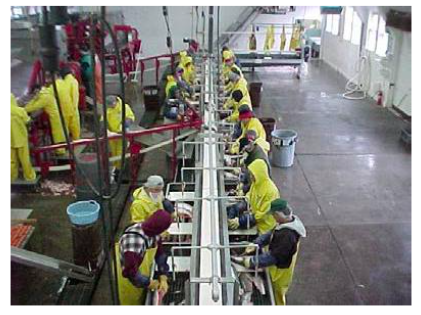As Alaskans turn the page to 2018, those on the first rung of the wage ladder will see their paycheck increase by a modest four cents an hour, due to an indexed minimum wage increase the State of Alaska set two years ago in statute.
Going from $9.80 to $9.84 an hour is but 32 cents a day, or $6.40 a month more in wages.
But the real boost that these workers will see starting in January is the 3 percent extra they’ll be getting in their paychecks thanks to federal tax reform passed last week by Congress and signed into law by President Donald Trump.
Those making between $9,526 and $38,700 will pay 12 cents on every dollar earned to the IRS, rather than 15 cents. Taxes apply only to the taxable portion of their income. A minimum wage worker in Alaska will very likely pay less than $800 in federal taxes on a $20,467 annual income.
[Calculate your estimated taxes under the tax reform that is now law.]
It’s unknown how much of that will be clawed back by the State of Alaska, if Gov. Bill Walker’s income tax actually passes. Walker has introduced another state income tax, one in a series he has attempted to get passed in this three years in office.
MINIMUM WAGE TRENDS IN ALASKA
Alaska minimum wage jobs encompass about 1 percent of the Alaska workforce, mainly those who work in either restaurants or seasonal seafood processing.
Tips don’t count toward the minimum wage. Most in the seafood processing field are banking overtime pay, calcuated at 150 percent. Slime-line workers on floating processors start at minimum wage but typically work 16-hour shifts.
A ballot initiative passed by Alaska voters raised the minimum wage in 2015 and again in 2016. Alaska statute requires it to be adjusted from here on, using the Consumer Price Index for the Anchorage metropolitan area for the preceding calendar year.
The federally set minimum wage is still $7.25, unchanged since 2009. But Sen. Bernie Sanders, other Socialists, and many Democrats have advocated for a $15 national minimum wage. Such a wage balanced between the low cost of living in a place like Alabama, compared to the high cost of living in Alaska, would have big consequences for workers.
In fact, Rep. Geran Tarr, D-Anchorage, introduced HB 45 in January to increase the Alaska minimum wage to $15, or $31,200 per year.
That bill was referred to the House State Affairs Committee on Jan. 18, and was put on the back burner. It’s likely to be activated again during the 2018 legislative cycle and will fuel debate in an election year.
When wages in Seattle increased to $15 in 2017 for large employers, the city saw a 9.4 percent drop in hours worked by low-skill, entry-level workers, according to the National Bureau of Economic Research. That equaled 14 million hours per year in lost wages.
A recent study by the University of Washington found that after accounting for fewer hours and higher unemployment, Seattle’s sharp increase in minimum wage actually reduced the total income of minimum wage workers.
While the Bernie Sanders Democrats like to portray the minimum wage as applying to struggling families, in reality it mainly affects younger and part-time workers seeking to gain work experience or workers with additional tip income, such as restaurant staff.
Economists say that a $15 an hour minimum wage is a tipping point that makes it more economical for some industries to convert to automation, rather than use human labor. In Alaska, think seafood processing.
